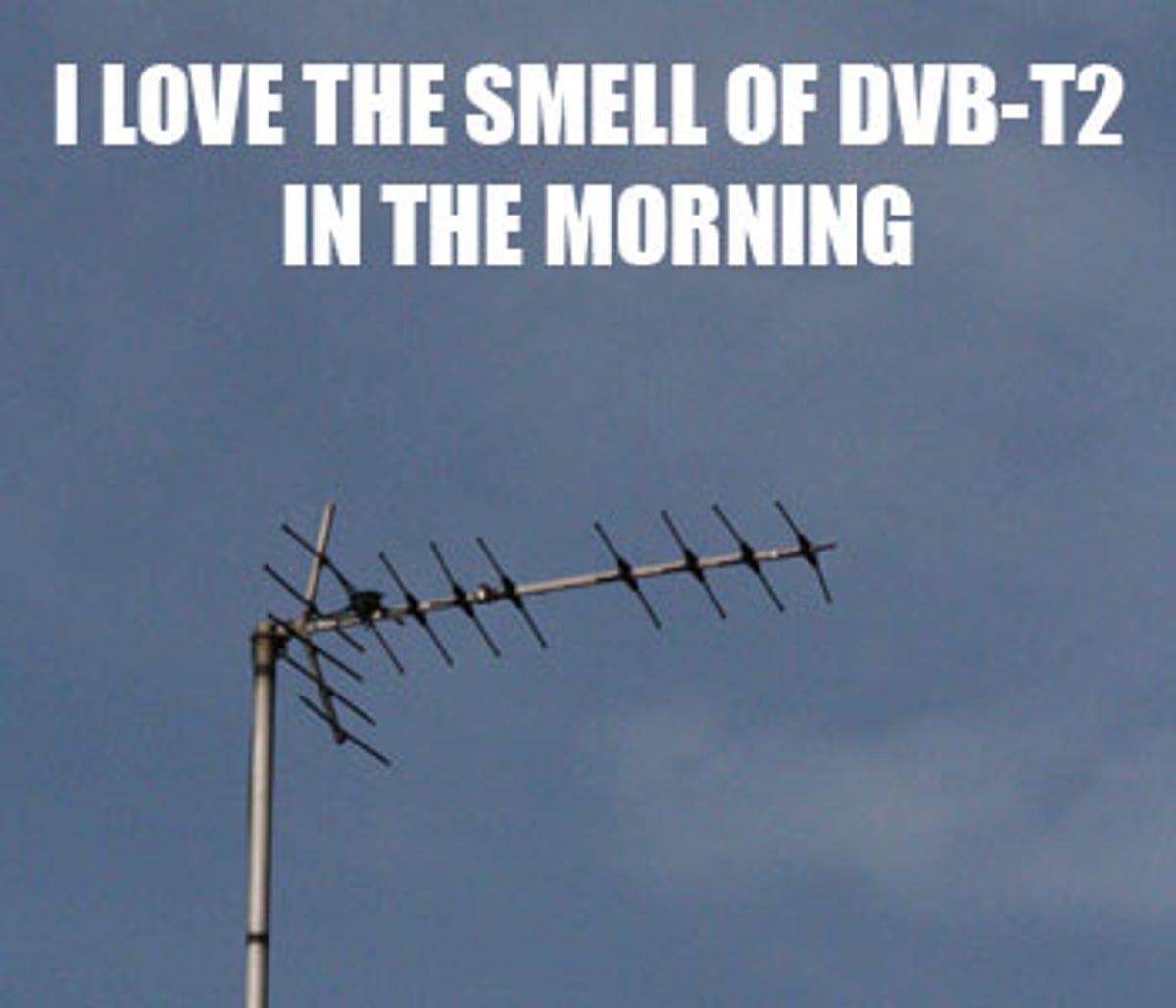
In case you didn’t know, the BBC does more than just broadcast EastEnders — indeed, it has one of the most productive and highly respected research and development teams in the world of broadcasting. As it happens, the R&D department, now called BBC Research and Innovation, turned 60-years-old last Friday, and to celebrate received the world’s first end-to-end HD broadcast via DVB-T2, the updated terrestrial broadcast system.
DVB-T2 is widely expected to be used after the analogue switch-off, because it offers a more efficient use of the spectrum than the current DVB-T standard, which is used across Europe. The new system would co-exist with the existing infrastructure and hopefully provide HD to people who don’t have services from Sky or Virgin. The BBC has already conducted similar trials, but this one is different because it actually contained video, rather than just being a transmitter test.
The test broadcast consisted of three HD programmes, each encoded using MPEG-4 and each having an 11Mbps data rate. These were multiplexed together and fed into a DVB-T2 modulator developed by the boffins at the BBC. The signal was then sent via the Guildford transmitter — often used for trials because of its proximity to R&I’s headquarters at Kingswood Warren. After being transmitted, the receiving hardware demodulates the signal and produces a transport stream containing the three programmes, which can be decoded by an MPEG-4 decoder.
All of this birthday excitement means we could be on our way to HD on Freeview. It’s expected that areas where analogue has already been switched off will be first to receive HD over-the-air — good news if you live in Wales, not so good for Londoners.
Happy birthday BBC R&I! We can’t wait to see what the next 60 years will bring. -Ian Morris




